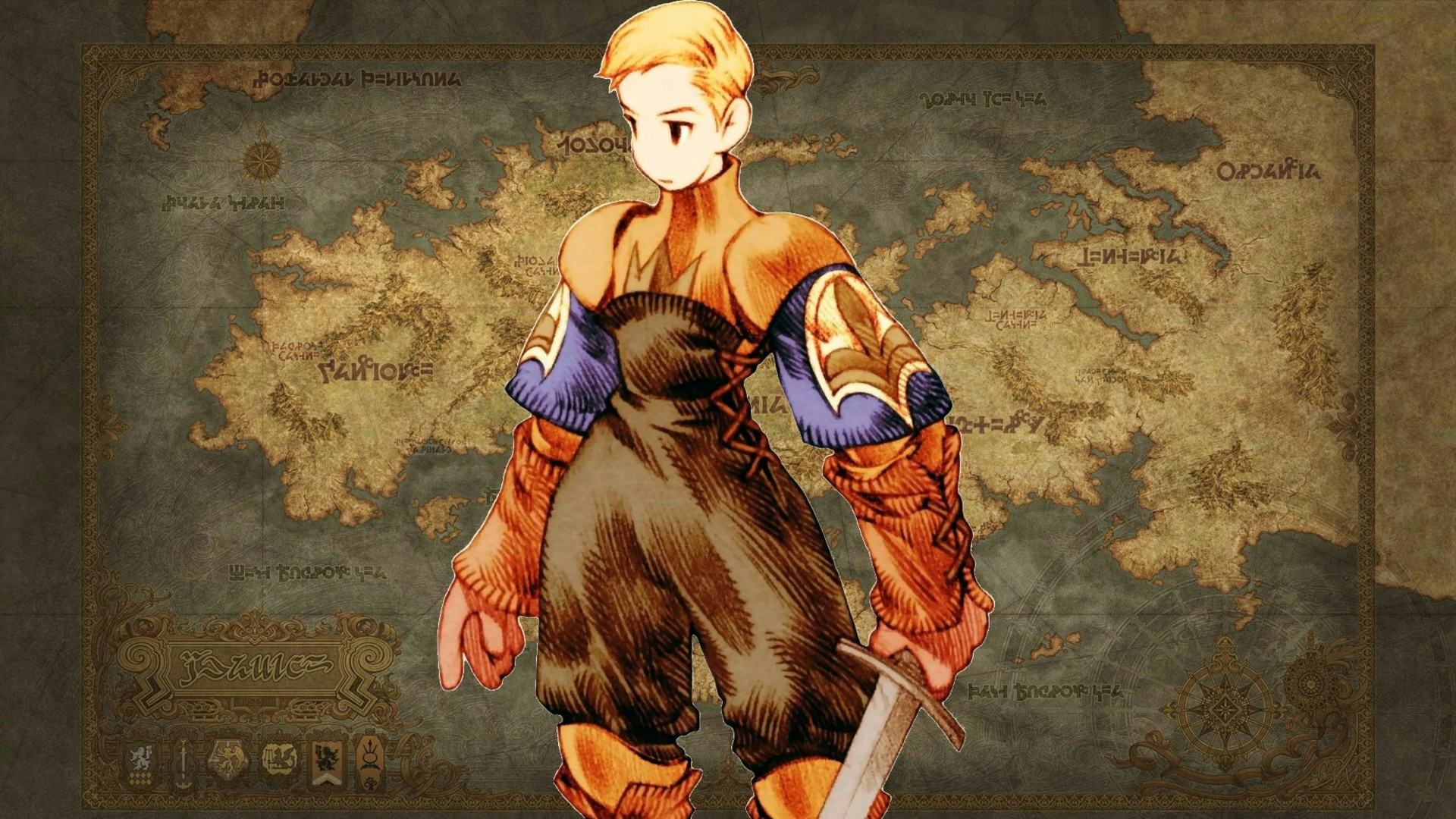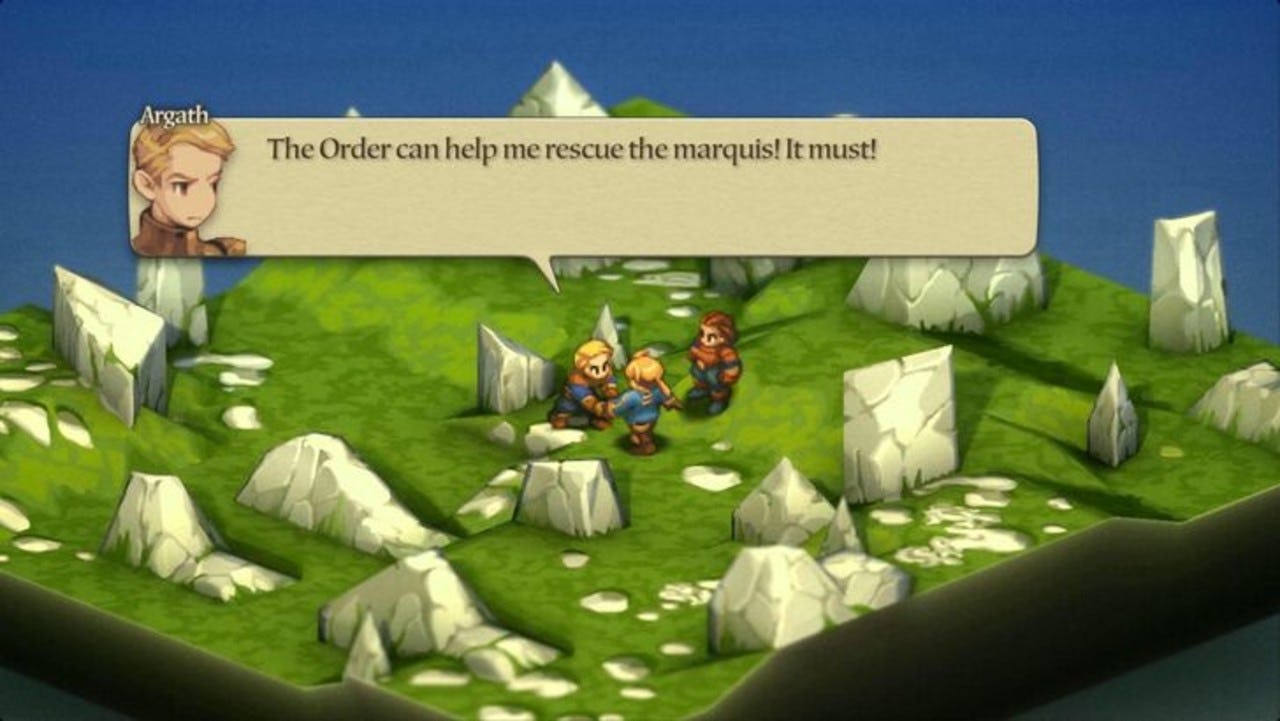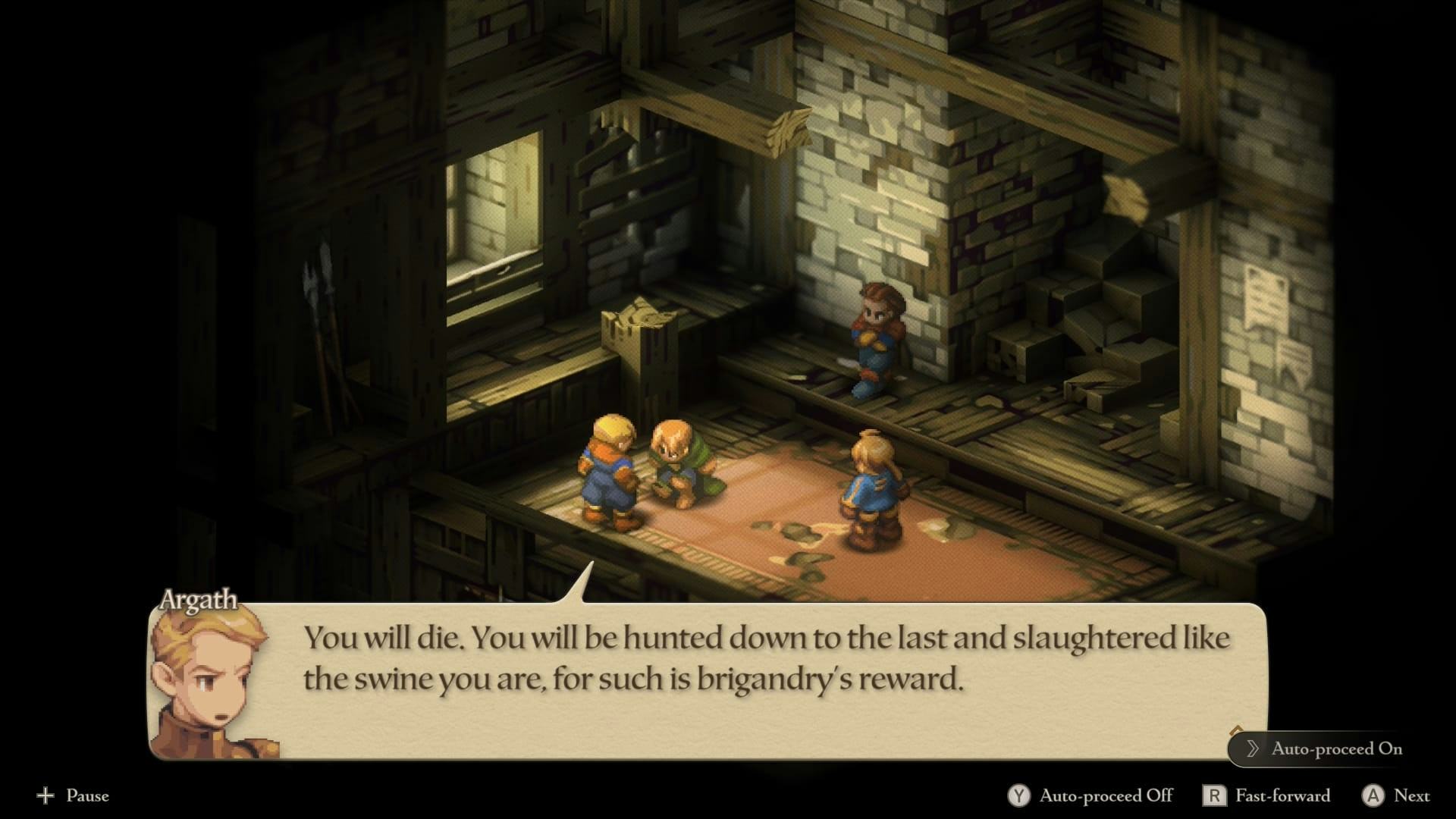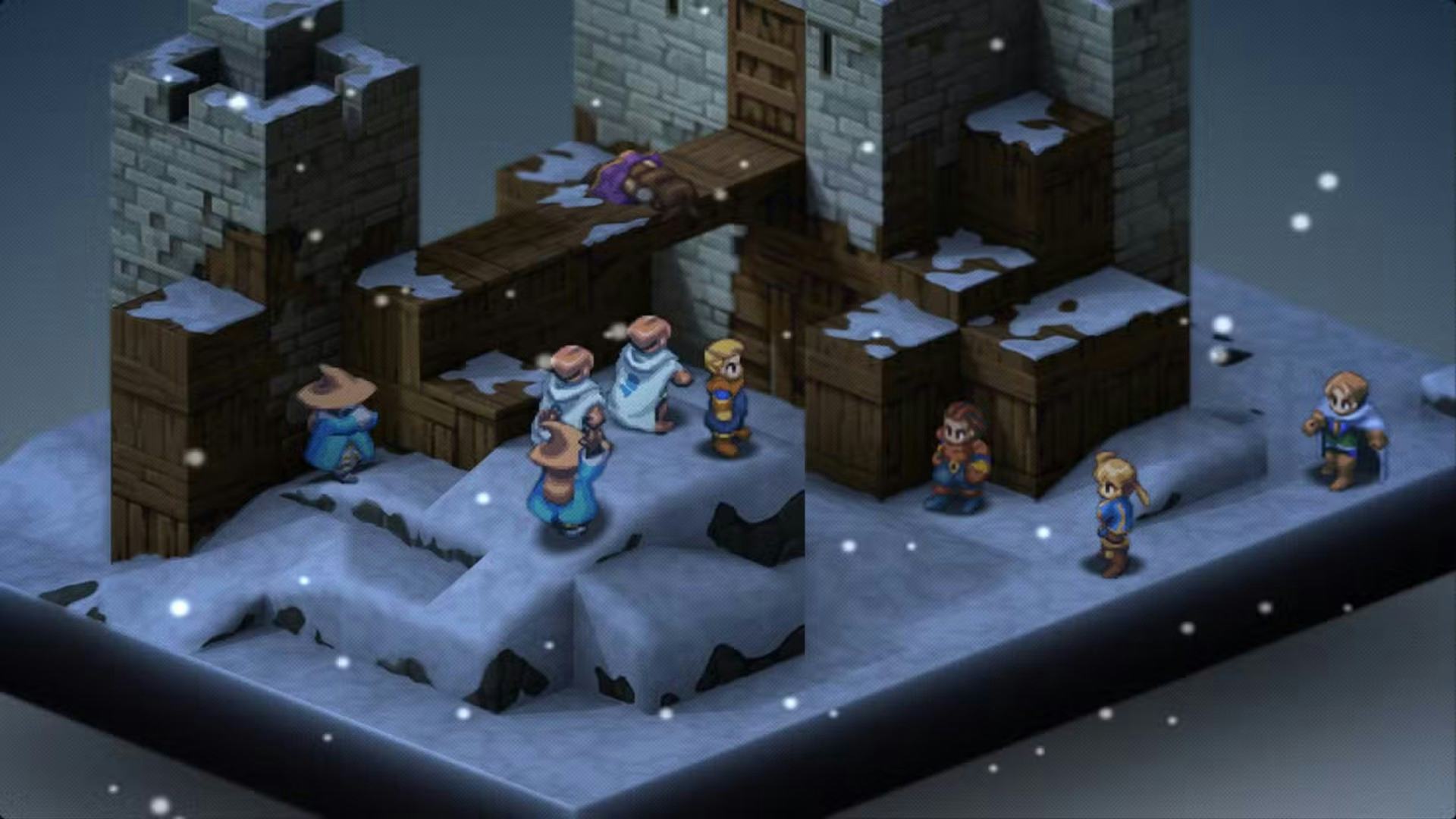
Final Fantasy has never had a shortage of great villains, but even alongside the legendary likes of Sephiroth, a single small character from Final Fantasy Tactics has always stood out to me: Argath Thadalfus. Initially starting out as an ally, Argath quickly transforms into one of the most grotesque, virulently prejudiced people you’ve ever seen in your life. His seemingly sole reason to exist is to hate the “lower class” scum that he wants to grind beneath his boot — a villain entirely driven by hate and spite. It’s easy to loathe Argath, and The Ivalice Chronicles adds brilliant voice acting and new lines to make him even more detestable. But playing the game again nearly three decades later made me realize something. There’s a new wrinkle to why I find him such a compelling villain — he feels strikingly realistic.
Warning: This article will contain spoilers for Final Fantasy Tactics: The Ivalice Chronicles.
While I’ve always loved a good tragic villain (Sephiroth), or the singularly evil mastermind bent on simply sowing chaos (Kefka), Argath is compelling for an entirely different reason — he’s simply pathetic. Argath is the antithesis of everything Ramza and Delita stand for; where they believe in justice and equality, Argath believes in division and superiority. But crucially, Argath is also the thing that truly sets the game’s plot in motion, the reason for the rift between Ramza and Delita, and why the two are forced to enter the grand political game of Ivalice.

Ramza first happens upon Argath as he’s being attacked by monsters, and together with Delita, they save the young man. Upon learning that Ramza is a Beoulve, Argath instantly sees a kindred spirit — a fellow noble to attach himself to, who can help him restore his fallen house to glory.
But very quickly, Argath realizes you aren’t the same kind of “noble” as him, and his mask starts to slip as he shows more of his true colors. Argath is someone who believes the pure lineage of nobles is ordained by the gods to rule over the weak and impure. This idea is driven home with a new bit of battle dialogue in the mission where you take out Wiegraf’s sister Milleuda.
As Milleuda talks about how the common people have been forced to thievery just to survive, but the place of their birth makes them no less human, Argath interjects, saying, “You, no less human than we? Haha! Now, there’s a thought. You’ve been less than we from the moment your baseborn father fell upon your mother in whatever gutter you were sired.”
That single line encapsulates Argath’s entire ideology, how he’s driven by a single fiery belief that inequality isn’t only just, it’s the baseline of how the world is supposed to be. And that’s exactly what makes him such a well-written villain — a look at how immense privilege can warp the way you view the world. And the crucial point here is that there’s never a moment of redemption for Argath, never a time when he considers the error of his ways or his privilege.

He doesn’t go out in a blaze of glory; he meets a pathetic end in the snow, forgotten by the entire world — merely a tool in the schemes of the nobles he so desperately sought the approval of. He’s simply a villain who’s hateful through and through, and in turn is easy to hate.
But the more important element here is how Argath ties into Tactic’s overall themes of classism and oppression, and how timely the game’s message really is. For all intents, Argath is a stand-in for a nationalist, someone who believes that they are inherently better than the people they live alongside, a part of a group pre-ordained to be superior. That this character only feels more relevant and true to actual people in power in our world right now than he did 28 years ago is fascinating.
And it’s fascinating that I can see parallels between Tactics and another highly political piece of media that was recently released, Paul Thomas Anderson’s film One Battle After Another. The main villain of One Battle After Another, Colonel Lockjaw, is an inherently nationalist character who serves in the United States Military, tasked with imprisoning and deporting illegal immigrants crossing from Mexico. But at a certain point in the film, he attempts to join a secret white supremacist organization called the Christmas Adventurer’s Club — driven by an ideal that he has to purge anyone dirty or different from the country.
The mechanisms of their hate might be different, but both Argath and Lockjaw believe in supremacy — and are singularly driven by the ideal that they’re simply better, by nature. Both characters are a good reminder that those ideals don’t have any place in a moral compass. People like Argath and Lockjaw don’t actually have any standing morals; everything shifts in service to their success and their superiority. These two characters don’t truly experience love or companionship — they’re pathetic weirdos driven by a misbegotten sense of how they’ve been wronged. The only people who stand alongside them are equally pathetic weirdos who only believe the same thing. But these two aren’t just caricatures, they’re real warnings of danger — fantastic worlds that reflect our own with characters like Argath and Lockjaw.

It’s an important reminder for this exact moment in time, as we see more rich and powerful people try to exploit everyone they deem below them in a grab for more power. No matter how much they have, it’ll never be enough, but in turn, they’ll never truly be happy — it’s a wretched, endless pursuit. And that’s equally why we shouldn’t be scared of them.
Despite the damage someone like Argath can cause, there’s some solace to be found in the fact that a bizarre shell of a person like him will never feel satisfied, and never know what it’s like to truly live. And that’s what makes Argath stand out so much, he isn’t some mystical god with destructive powers — he’s just a sad, pathetic little man. It connects back to Tactics’ themes and message of division more nicely than anything else in the game, a shockingly relatable reason for so much of the strife we see in the real world.







